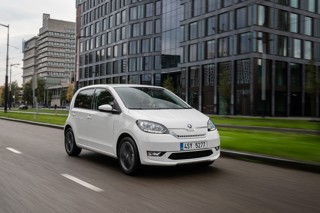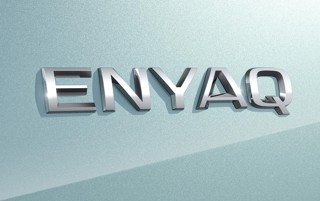The British Vehicle Leasing and Rental Association (BVRLA) is asking the fleet sector to act now to safeguard the future of the plug-in car and van grants.
The trade body is urging stakeholders from across the industry to write to their local MP and ask for their support in securing long-term Government support for the vital grants, which help bridge the price gap between electric vehicles (EVs) and their petrol or diesel counterparts.
It has set up a campaign page on its website to speed up the process.
BVRLA chief executive Gerry Keaney said: “Our members are already buying tens of thousands of electric vehicles each year and are helping businesses and individuals across the country to make the leap to zero emission motoring.
“By setting these new decarbonisation targets, the Government is in danger of writing a cheque that the fleet sector cannot cash.
“Businesses are being asked to invest billions of pounds in new electric vehicles and infrastructure over a short timescale.
“Tax incentives are vital, but so are the plug-in grants. They need to be maintained in some form until at least 2025 if we are to deliver the transition that is required.”
The BVRLA used its recent 2020 Budget submission to make the case for the Plug-in Car Grant, highlighting that the grant reduces the cost of a typical leased EV by around 25% or £100 per month.
The trade body also said that the cost of funding the grant is partially offset by the increased VAT returns obtained from more expensive EVs and the grant plays a vital role in making the UK a more attractive market for manufacturers to sell EVs.
Keaney continued: “BVRLA members have already put their customers into 90,000 plug-in vehicles. They and their colleagues across the fleet sector have already demonstrated their electric vehicle commitment and credentials. Pulling the plug-in grant would destroy this momentum.”
The plea from the BVRLA comes as a new survey suggests that just 30% of people working in the automotive industry think that the UK government is doing enough to encourage the widespread uptake of EVs.
This is just one of the findings from a DNV GL survey of automotive manufactures, power suppliers, charge point operators and investors for their view on how the EV landscape will change between today and 2025.
However, despite this warning, 69% of the respondents still think that the governments Road to Zero strategy, which aims for at least half of new cars to be ultra-low emission by 2030, is still achievable.
The strategy introduced in 2018 also includes steps to enable massive roll-out of infrastructure to support electric vehicle revolution, in a move said to be the biggest technology advancement to hit UK roads since the invention of the combustion engine.
The UK government also announced last week that it will bring the ban on petrol and diesel cars forward to 2035.
When asked whether they would consider buying an electric vehicle, 48% of the respondents said ‘yes’ but a further 42% said ‘not now’, revealing a reluctance which echoes that of UK consumers. Last year a survey by Transport Research Laboratory, found that just one in four people in the UK would consider buying a fully electric car in the next five years.
Commenting on the findings, Jeremy Parkes, Global business lead for EVs at DNV GL, said: “According to DNV GL’s Energy Transition Outlook, a forecast of the energy landscape to 2050, globally fifty million electrical vehicles will be needed per year by 2030 to help meet climate targets and curb global warming.
"Whether this is achievable is intrinsically linked to Governmental policies to alleviate consumer concerns and encourage the widespread adoption of EVs.”























Robert Chisholm, Applewood Vehicle Finance Ltd - 12/02/2020 12:10
Let’s assume the Grant is removed. What will happen next? Will RVs on electric vehicles strengthen? Will operating periods lengthen? Will manufacturers take a look at their pricing strategy? Will company drivers decide to take a fresh look at smaller capacity, efficient, cleaner ICE vehicles? Importantly I’d prefer to see the Grant money put into developing the charging and power infrastructure first before encouraging the use of vehicles that could become a real problem if there are too many around before a sufficient infrastructure is put into place.